Manzana-Postobon flying the flag for Colombia in Vuelta again
Young squad looking to gain experience and fight through to Madrid
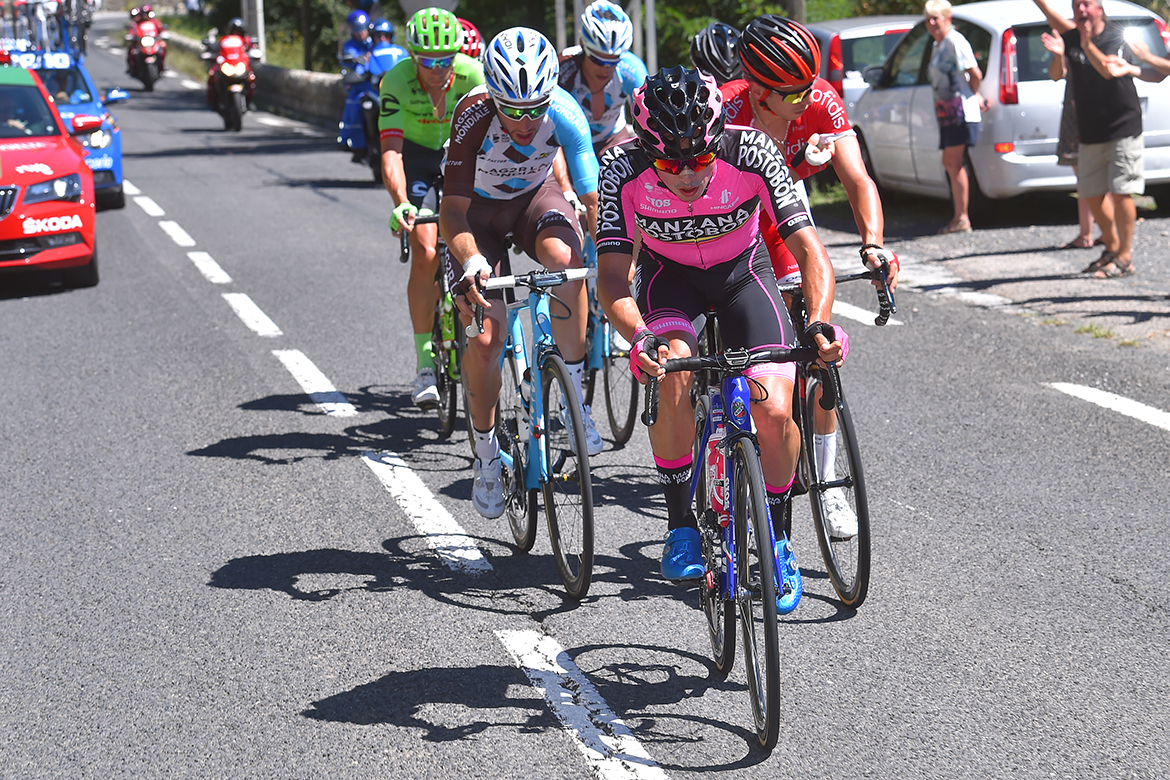
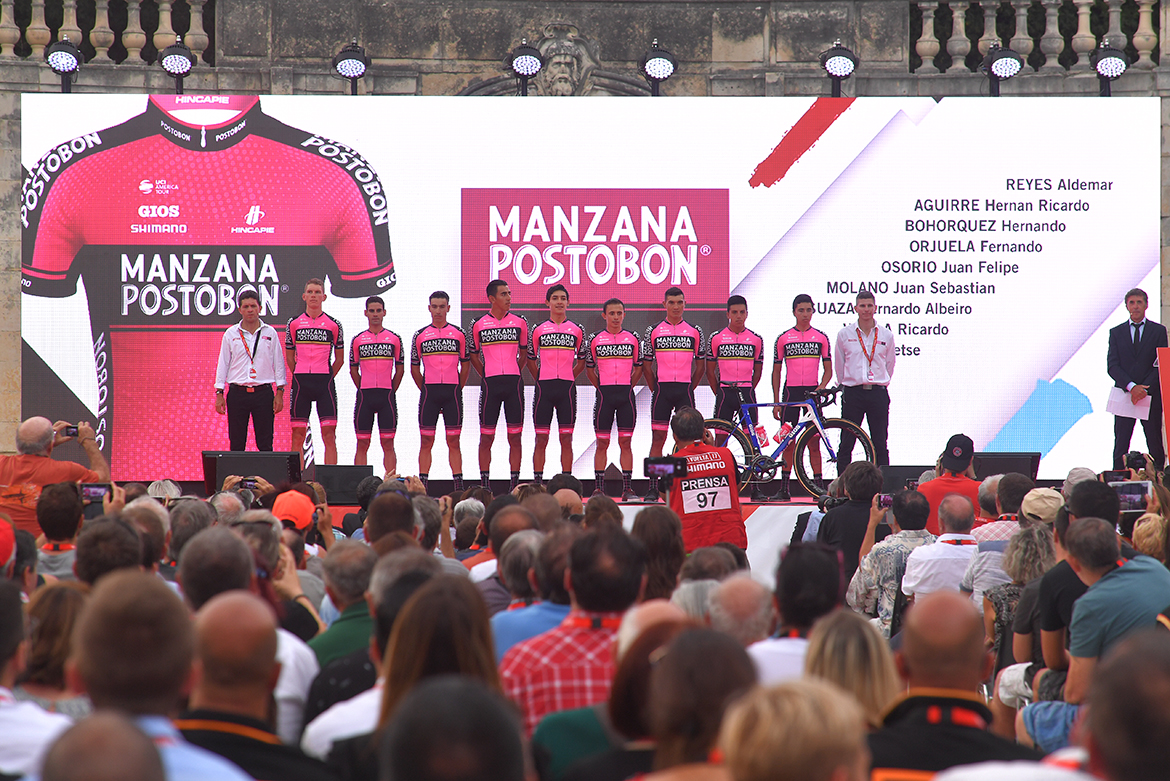
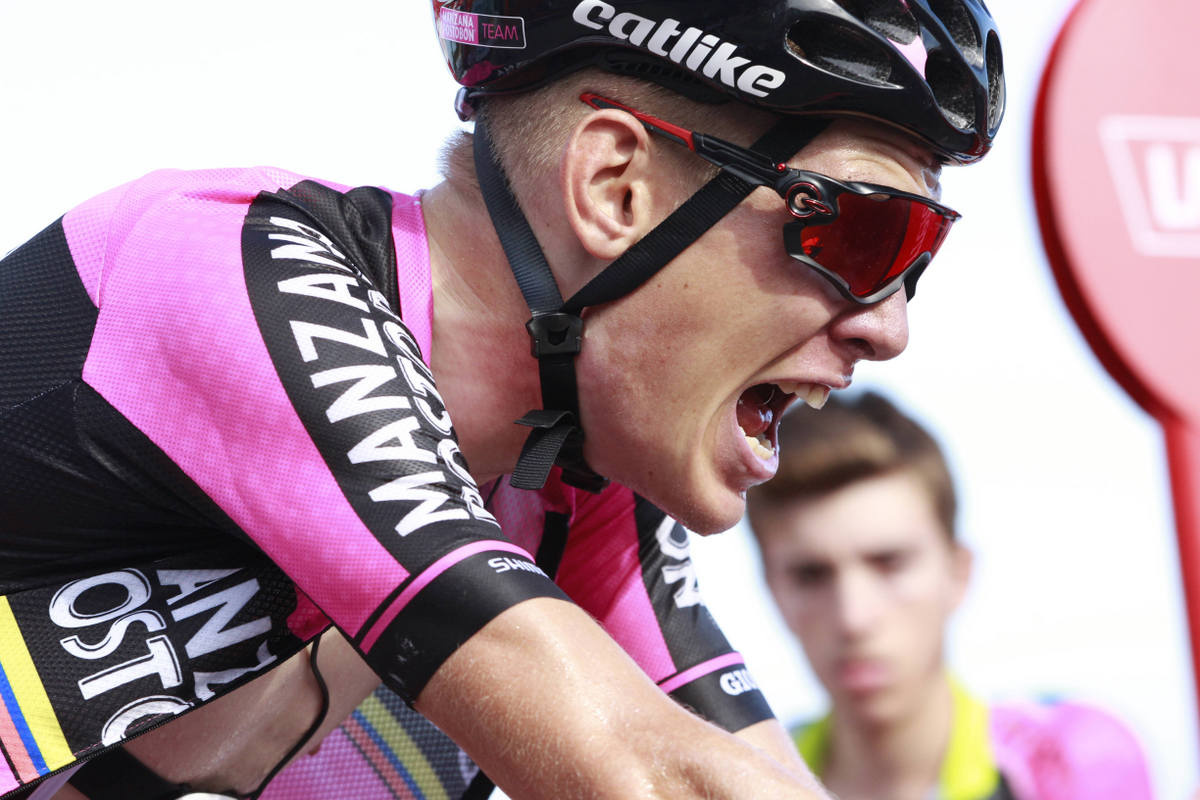
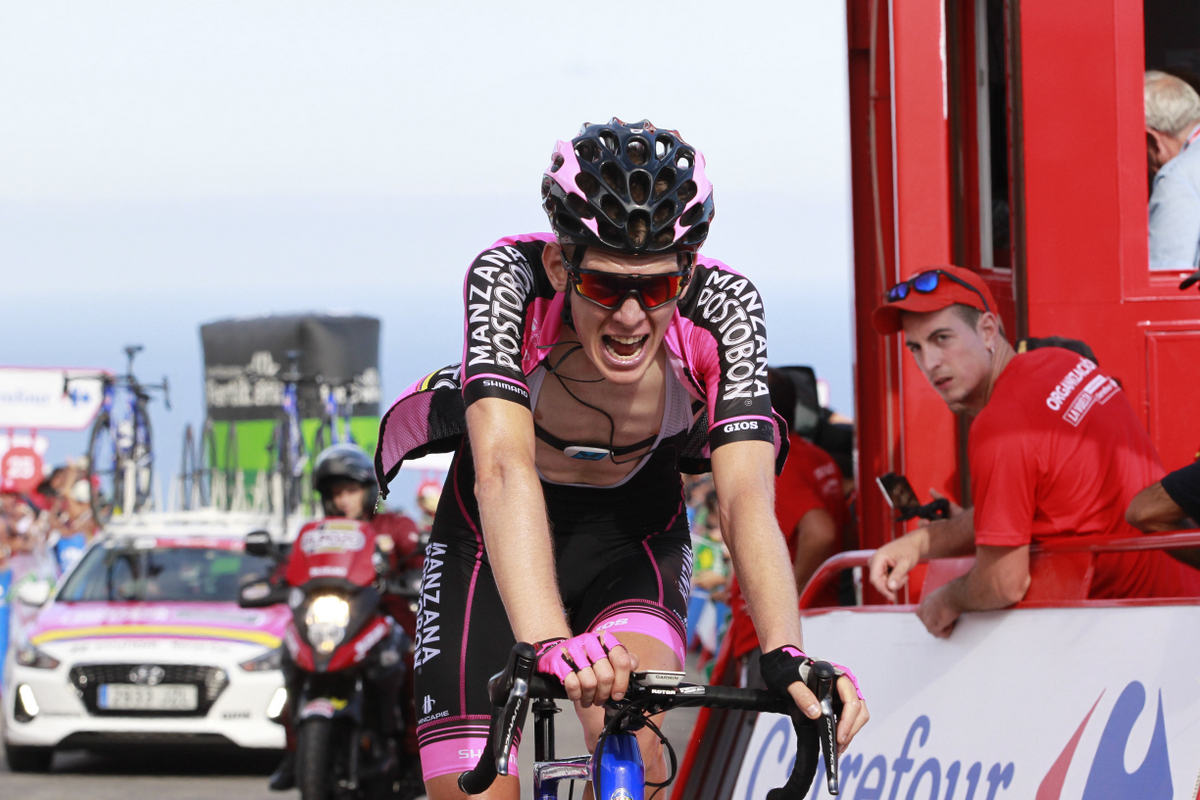
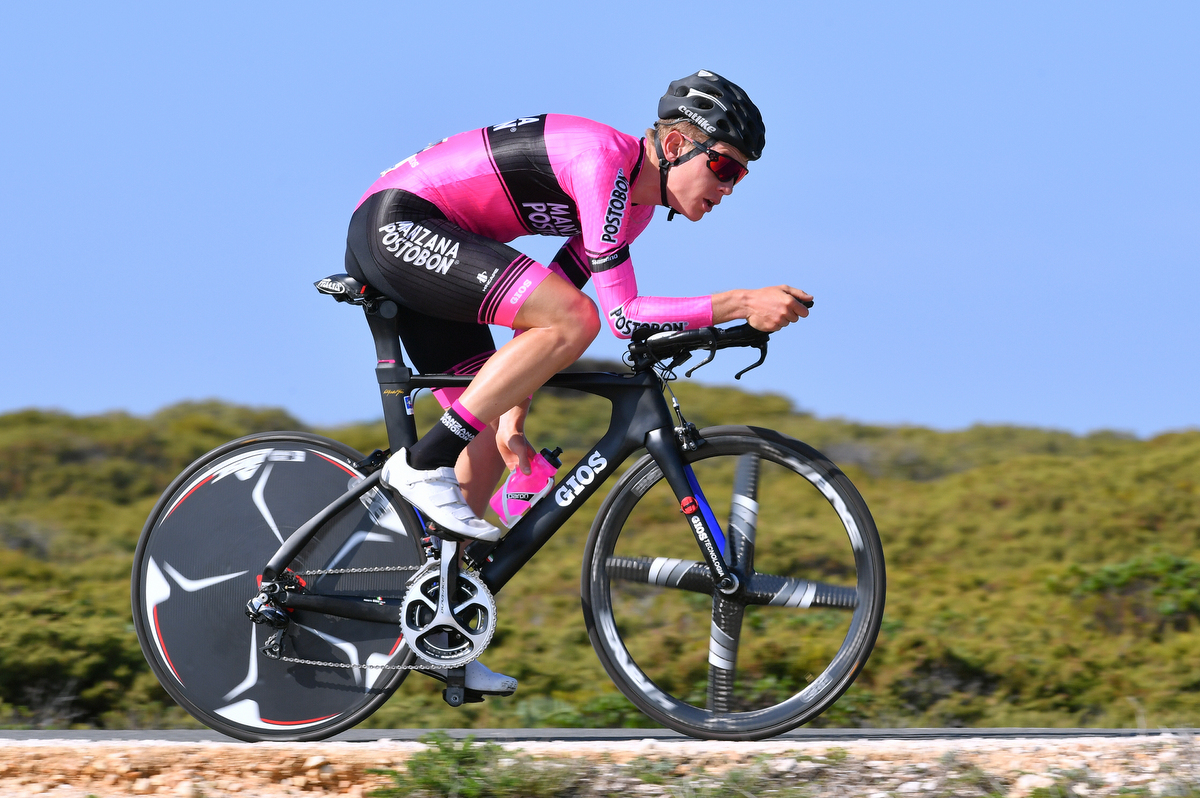
It's now nearly 30 years since the legendary Colombian squad Manzana-Postobon last raced in the Vuelta a Espana, back in the days where it was part of a wave of South American success spearheaded by riders like Fabio Parra, Lucho Herrera, Oliverio Rincón and Alvaro Mejia.
In 2017, Manzana-Postobon clinched one of the four Professional Continental invitations for the Vuelta, a remarkable achievement given the Colombian squad has only just ascended into this category from the ranks of the Continental teams. But in this first week they've been in the thick of the breakaway action, most notably with Jetse Bol, a Dutch racer who shot up from 32nd to seventh place overall after a long move on stage seven to Cuenca.
"Our objectives are clear, the first being get as many of our riders through to the finish in Madrid as we can, because we've got a very young line-up, the youngest average age of any Pro Continental squad in fact and of course here in the Vuelta, too" team director Oscar De J Vargas, tells Cyclingnews.
"We've got such a young squad we have to take it on the day by day, getting experience, remembering that we're fighting against some of the biggest names in the sport, winners of Giros, Tours and Vueltas."
"This team is like a sponge, it comes to absorb and learn, to get through the race and to win what we can. We've got a good sprinter like Juan Molano" - winner of a stage of the Vuelta al Alentejo in Portugal - "and a lot of good climbers. So the potential is there. But the riders have to accept where we are and what we're able to do."
Vargas is part of Postobon's and Colombia's own Vuelta history, having raced with Manzana Postobon from 1987 to 1991, in a former incarnation of the squad. Now he has made his first return to the Spanish Grand Tour since winning a stage in one of Spain's top whisky distilleries, Dystilerias DYC, in 1992. A winner of the prestigious Tour of Antioquia in Colombia, the stocky 53-year-old captured most of his top European results in Spain, including a third place overall in the 1989 Vuelta a España, as well as the Kings of the Mountains title, and a fifth place on GC in the Vuelta again in 1987.
In 1990, he was en route to taking another top ten finish overall in the Vuelta, securing the teams classification for Manzana Postobon in the process, when he crashed out close to the finish on the second last stage and was reduced to watching his teammates ride on the last stage in the Paseo de la Castellana in Madrid the next day from his hospital bed.
The latest race content, interviews, features, reviews and expert buying guides, direct to your inbox!
Having retired at 31 and studied to become a sports director, Vargas takes a realistic viewpoint on Manzana Postobon's options in the Vuelta, by far the biggest race in which they've taken part.
The objective, for example in the team time trial was very simple. "We wanted to put on a decent performance and we did that, we weren't last. There were lots of crashes, too, but thank goodness we all stayed upright on what was a very technical course."
"We've come through some very technical finishes, and even if even if people say 'ooh, a stage like Andorra should be where we're seeing the climbers from Colombia make a move', they should keep a better perspective on us . On stage three in Andorra, for example, the front guys smashed all the records for climbing the Rabassa and the Comella climbs.
"So of course, we're not going to win the Vuelta, and even a top ten would be very difficult. So I talk it over with my riders and say, ‘look, there'll be difficult days to come.
But he points at riders like Nairo Quintana (Movistar) and Esteban Chaves (Orica-Scott), who formed part of the team in its amateur days and prior to its reaching the Continental ranks in 2016, and tells his riders that they should use them as inspiration. "I say to them, imagine yourself in this race in three or four years time, with everything you've learned now.'
"And that's another question - how am I going to stop all these riders of mine signing for other teams? If we manage to keep them all, in three or four years time we're going to have a really competitive team.
Vargas says the Vuelta is all but unrecognisable in many ways - logistically, technologically, much shorter stages - compared with when he raced it back in the 1980s. The change of dates is one major factor, of course, from April to September, when, as he says, "it was much, much colder then, with temperatures below freezing, snow…that made it much more epic but it doesn't mean that the riders in the current peloton couldn't do what we did."
"They were different eras, that's all and everybody had different attitude to racing. For example, now the riders actually count the numbers of days they race in a year. When we were riding, nobody bothered with that!"
Vargas says that he paid a high price for teams' cavalier attitudes towards their riders' physical condition, in that by the time he did the Tour de France each year, he was always burned out from a race-heavy first part of the season. And he also believes that the Colombians in the modern peloton don't have to endure such hardships as they did back in the 1980s and 1990s on a personal level, given that the Internet has made staying in touch with home much easier.
"Back in the day we'd ring the family once every eight days, five minutes maximum, and it'd cost you a fortune. Now, with WhatsApp you can get them on the computer screen and if you want to talk with them for 35 or 40 minutes, it doesn't' matter at all. You feel that they're much closer."
"Back then you all got too far apart emotionally, and you got terribly homesick. Now you don't get those bad moments when you feel so lonely, your morale can stay much steadier as a result. And now if your photo gets in the paper for a win in Europe, you see it straight away. Back then it'd take weeks or months."
Should that hypothetical cycling victory in the Colombian press be one for Manzana Postobon in the Vuelta a España, of course, Vargas feels it would make their race. "As I tell the lads, there's 21 days of racing here, but we only need to hit the jackpot in one."
"So you can't throw in the towel, we could be dragging ourselves along all the way to the last week and then suddenly a win arrives and that's it, we've got what we were looking for right from the start."
Alasdair Fotheringham has been reporting on cycling since 1991. He has covered every Tour de France since 1992 bar one, as well as numerous other bike races of all shapes and sizes, ranging from the Olympic Games in 2008 to the now sadly defunct Subida a Urkiola hill climb in Spain. As well as working for Cyclingnews, he has also written for The Independent, The Guardian, ProCycling, The Express and Reuters.
